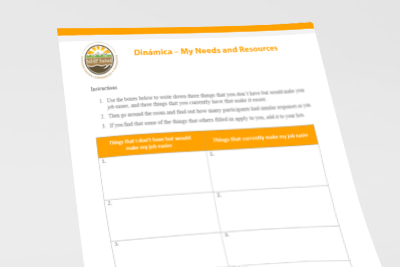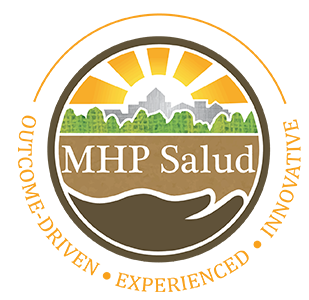La Esperanza (Hope) is a bilingual newsletter dedicated to the work of Community Health Workers across the country. MHP Salud, collaborators and CHWs themselves write articles specifically for and about their work.
La Esperanza Summer 2022 Edition
Emerging Issues among MSAW Populations
Migrant Seasonal Agricultural Workers (MSAWs) are defined as seasonal farmworkers who travel to perform farm work and cannot return to their permanent residence within the same day.1 Aside from this, the individual must also earn at least half of their income from farm work, have worked 25 or more days/parts of days in farm work, and are not employed year-round by the same employer.1 Mental health issues affect all populations; however, MSAWs may be at higher risk. Stressors in the MSAW community, such as drought, overwork, pesticide exposure, financial difficulties, isolation, physical health, and poor housing, have been associated with elevated stress levels and increasing mental disorders, including depression and anxiety.3 Traveling for work can cause distress to MSAWs as they leave their permanent residence and familiarity behind. When migrating for work, MSAWs leave behind their extended family, support systems, and the feeling of belonging (i.e., children temporarily leaving their school, classmates, friends, and relatives). Poor mental health can affect MSAWs’ productivity, hobbies, motivations, social interactions, ability to handle challenges, and overall contentment and ability to enjoy life.
Poor mental health may be especially difficult to identify and treat amongst agricultural workers as they face multiple challenges, including language barriers, stigmas, access to health insurance, and high poverty rates.2 These challenges make it difficult for the individual in need to reach out for help. MSAWs may be unable to seek help with mental health issues due to working conditions. MSAWs work long hours with few days off; asking for time off work means less income earned to provide for their families. MSAWs may refrain from seeking medical care due to the fear of immigration status and, instead, opt to self-medicate and/or share medication.
Mental health issues affect everyone in different ways. Some symptoms of mental health challenges include the following: loss of interest, loss of concentration, loss of appetite, weight change, tiredness, irritability, difficulty sleeping, fatigue, loss of control or temper, anxiety, low self-esteem, withdrawal from social interactions, forgetfulness, and substance abuse. In addition, MSAWs may experience burnout, physical and mental exhaustion, and thoughts of suicide. Mental health has a deep impact on one’s wellbeing and physical health.3
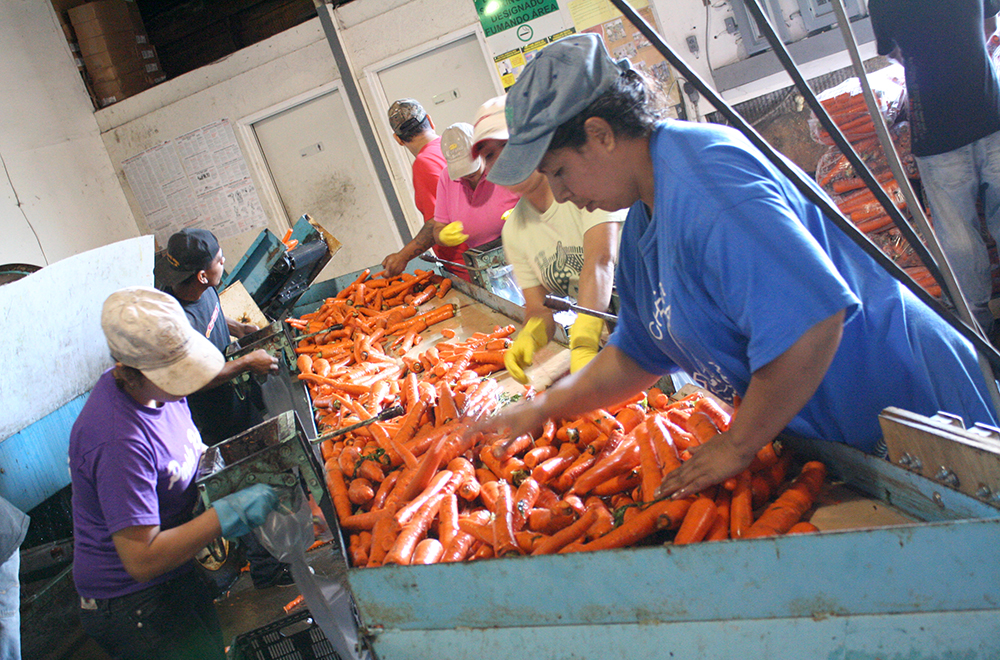
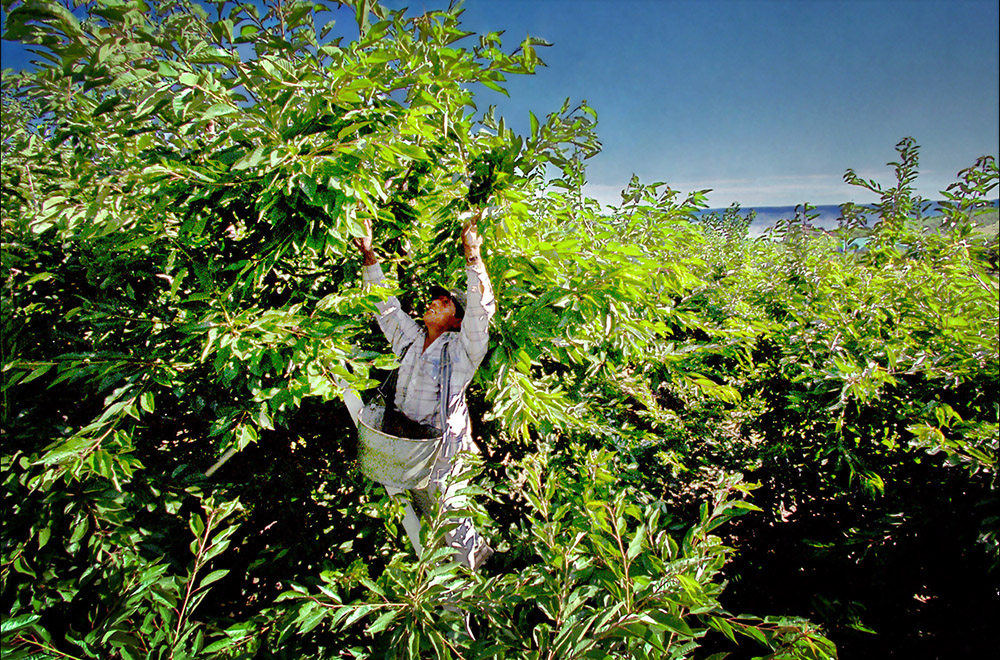
Self-Care Practices
The World Health Organization (WHO) defines self-care as: “the ability of individuals, families, and communities to promote health, prevent disease, maintain health, and cope with illness and disability with or without the support of a healthcare provider.” As defined by WHO, self-care includes health promotion, disease prevention and control, self-medication, providing care to dependent persons, seeking hospital/specialist care if necessary, and rehabilitation including palliative care.4 Self-care is often seen as a selfish or self-indulging act, but it is the opposite of that. Self-care encourages taking care of yourself to promote feeling healthy, well, and capable of helping yourself and others to be able to complete daily tasks effectively. Practicing self-care can prevent burnout and improve overall health. Self-care includes practices to help you stay physically, mentally, and emotionally well. 5
- Emotional self-care, such as self-talk, weekly bubble baths, saying “no” to things that cause unnecessary stress, giving yourself permission to take a pause, or setting up a weekly coffee date with a friend
- Physical self-care, such as prioritizing sleep, adopting an exercise routine you can stick with, choosing healthy and nourishing foods over highly processed ones
- Spiritual self-care, such as attending a religious service, spending time in nature, meditating, incorporating regular acts of kindness into your day, or keeping a gratitude journal 5
Self-care practices will vary for everyone, but the overall benefits promote positive health outcomes. MSAWs may face barriers to self-care due to living, working, or financial conditions. Self-care does not have to take a lot of time or cost money, i.e., going for a walk, asking for help with tasks, listening to music, reading a book, spending time in nature, etc. Practicing self-care can benefit MSAWs to reduce and manage stress, improve overall mental health, and find balance between work and personal life to prevent burnout.
CHW Role in Addressing Current Emerging issues
A Community Health Worker (CHW) is a trusted member of the community who empowers their peers through education and connections to health and social resources. They have proven to be successful at increasing health outcomes for their communities because of their deep understanding of the cultural norms of the people they serve. They are often members of the community themselves. They educate their peers about disease and injury prevention, work to make health services more accessible, and strengthen their communities to create positive change. Their understanding of local culture, language, and resources allows them to effectively address emerging health challenges in any geographic location of any cultural makeup and across various age groups. The variety of communities served means that CHW-led programs can look very different yet share the same common goal: to improve health outcomes in underserved and under-resourced communities.6
In the MSAW communities, access to health services is often restricted due to economic status, language, race/ethnicity, gender, age, geographic location, access to transportation, and availability of culturally appropriate health information. These barriers may impact MSAWs’ ability to find affordable fresh foods, keep appointments with health professionals, adopt healthier habits, and apply for health care and services. CHWs empathize with these complex life situations and are uniquely qualified to provide support to address these challenges by connecting MSAWs to community resources, organizations, and government programs that often offer free or low-cost services.6
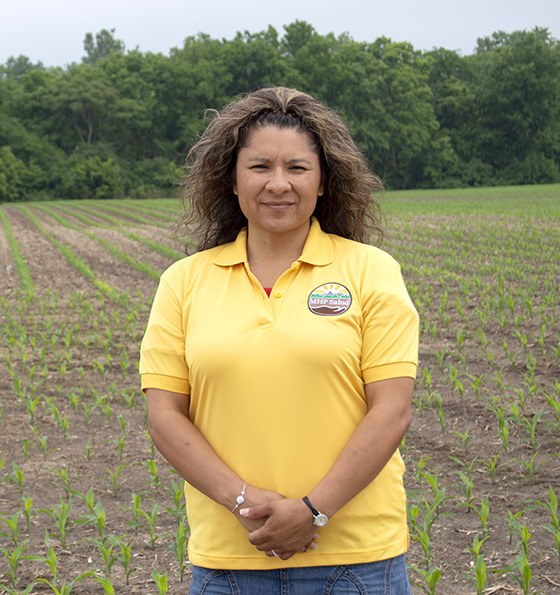
-
- https://does.dc.gov/service/migrant-and-seasonal-farm-workers
- http://www.ncfh.org/mental-health.html
- https://www.ncbi.nlm.nih.gov/pmc/articles/PMC6926562/
- https://www.who.int/news-room/feature-stories/detail/what-do-we-mean-by-self-care
- https://www.everydayhealth.com/self-care/
- https://mhpsalud.org/our-chw-initiatives/community-health-workers/
CHW Testimonials
“Self-care can help avoid burn out, it is important for you and your family, and your place of employment. Check out some of our examples of self-care activities and try something new today!”
Sylvia Rios, MHP Salud Community Health Worker
Some self-care activities may include:
- Eating healthfully
- Dancing
- Going for a walk or other exercise
- Getting enough sleep
- Taking time off work to address personal health needs
- Listening to music/singing
- Gathering with family and friends
- Going to church
- Connecting with friends and family over the phone or video apps
- Trying new things that interest you
- Taking time for self-reflection and to set personal goals
- Asking for help when needed
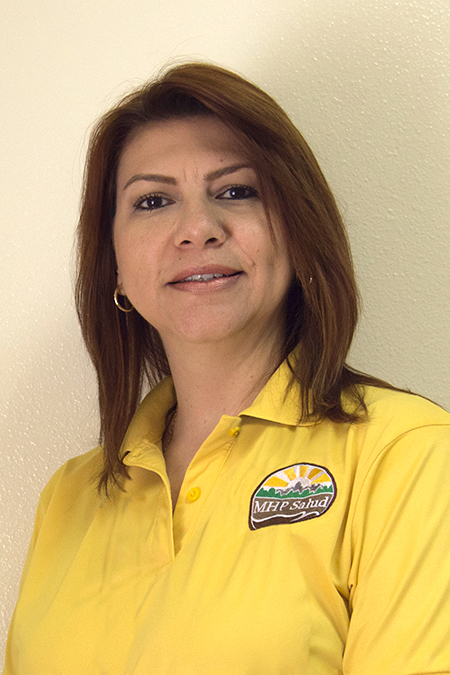
CHW Tool: “Ice Breaker Activity”/ Dinamica
Dinamica
A dinámica is an activity or game with a specific purpose, such as to get to know one another, learn new information, review what was learned, brainstorm new ideas, or just get a group moving. Dinámicas can be done in a virtual setting as well to motivate and energize the group.
Instructions
- Use the boxes to write down three things that you don’t have but would make your job easier, and three things that you currently have that make it easier.
- Then go around the room and find out how many participants had similar responses as you.
- If you find that some of the things that others filled in apply to you, add it to your lists.
Resources
Self-Care for Farmworkers
MHP Salud’s online resource for CHWs shares tips from a CHW on how to help improve the self-care of farmworkers.
Guide to Migratory and Seasonal Agricultural Worker (MSAW) Mental Health Equity
MHP Salud has shared a guide which provides health center staff with important resources, information, and tools to address the unique mental health needs of their MSAW patients.
Self-Care for Community Health Workers
The National Resource Center for Refugees, Immigrants and Migrants (NRC-RIM) in partnership with CHW Solutions has developed a CHW Self-Care Curriculum focused on the needs of CHWs to help maintain their own health, energy, drive, and capacity to serve at-risk populations for COVID-19 and other health issues in their communities.
Farmworker Health and Hygiene Basic Rules Video
Penn State Extension shares a video explaining why proper health and hygiene is important, discusses the sources of human contamination, provides the basic rules to prevent contamination, and details the components of worker training.
Toolkit for Addressing Health Misinformation
The Office of the U.S. Surgeon General shares a toolkit for members of the community to help address Health Misinformation. This resource provides a set of tools to understand, identify and stop misinformation.
Save the Dates: Upcoming MHP Salud Virtual Sessions
CHW Virtual Technical Assistance
The CBA Team holds CHW Virtual Technical Assistance calls addressing various issues. To reserve your seat, click here.
- June 16, 2022, 2:00 PM to 3:00 PM Central Time
Support Calls for Community Health Workers (Spanish)
MHP Salud is organizing 8 virtual support group calls related to COVID-19 for Community Health Workers who work in health centers and who speak or provide services in the Spanish language. These support groups are oriented to promote and support the discussion of the challenges experienced, the best practices and strategies, and the well-being of Health Promoters when working with the population of their health center on COVID-19 education and access to vaccines. The following are the upcoming support group dates. To register, click here.
- April 21, 2023, 1:00 PM to 2:00 PM (Central Time)
Strengthening Aging Services for Hispanic Older Adults
The Strengthening Aging Services for Hispanic Older Adults program is holding Virtual Technical Assistance calls on the 3rd Wednesday of the month. Reserve your seat by clicking here to register. See below for upcoming call dates:
- May 18, 2022
- July 20, 2022
Is your organization interested in starting or strengthening a CHW program? Click here to see how we can help you.
HRSA Disclaimer
This publication is supported by the Health Resources and Services Administration (HRSA) of the U.S. Department of Health and Human Services (HHS) as part of an award totaling $678,959.00 with 0 percentage financed with nongovernmental sources. The contents are those of the author(s) and do not necessarily represent the official views of, nor an endorsement, by HRSA, HHS or the U.S. Government. For more information, please visit www.HRSA.gov.
MHP Salud Disclaimer
All content found in MHP Salud materials, including websites, printed materials, photos, graphics or electronic content, unless otherwise cited, credited or referenced, were created by MHP Salud and are the organization’s intellectual property. As such, they are not to be used without the permission of MHP Salud and, if permission is granted, is to be cited appropriately with name and/or logo as designated by the permission granted by MHP Salud in addition to any other condition listed in permission.

